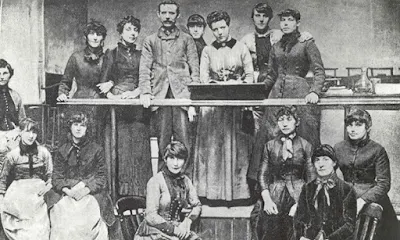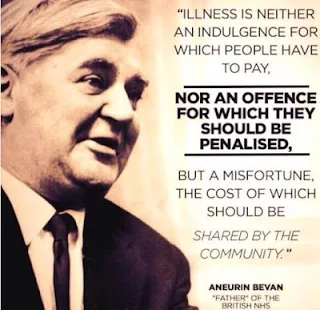Media
( mee-dee- uh)
noun
An institution largely controlled by rich people, in order to convince poor people to blame other poor people for problems created by rich people.
Constantly manipulating, perpetuating myths, that allow the poor to be blamed for their poverty, that allows the rest of society to avoid taking any responsibility.Allows dangerous policies to be imposed on whole sections of society without the full consequences from being examined. Through a systematic misrepresentation of the poorest in society. Offering us a constant stream of propoganda, disinformation and lies. This is turn, influences the way people see the world, and as a result, the media is a key by which the general population comes to accept, and support things. It also enables people to adopt a worldview that is pessimistic, desensitised and fatalistic. Increasingly the focus lies on sensationalism and entertainment that leads to the overuse of soundbites, that tend to be repeated indefinitely.
Bias in the media is a global phenomenon and as the media grows in power, the political and economic interests of news outlets and the ones who control it have grown as well, which has its impact on the opinons of those that are easily influenced. Sections of of Britain’s biggest papers, release racism, transphobia and homophobia also operate insidiously under the guise of “free speech”, “open platforms” and “rational debate”. We saw this when Newsnight asked whether alt-right figurehead Tommy Robinson was dangerous or just “a man raising concerns that others ignore”; and it reared its head recently when Question Time mused on whether it was “morally right” that “five-year-old children” learn about the existence of queer people. These debates are often set up in a way that is unrepresentative or makes an equal footing impossible – like a panel that is skewed towards racists or transphobic people, with only one black person or one trans woman to represent. Also according to research by YouGov, from a few years ago, the British media definitely has a skew to the right, the study covering 7 European countries found that people’s perceptions of right-wing bias were most pronounced in the UK. The study, involved 8,358 people showed that UK citizens were the most likely to think that the press is too negative about immigration.
Overall 26 per cent of the survey respondents said that UK newspapers, radio and TV was “too right-wing” as opposed to 17 per cent who said it was “too left-wing.” The study focused on five topics: immigration, housing, health, economics and crime. It certainly was grim reading. And it certainly seems to hae got far worse since this report initially came out.Bias in the media is a global phenomenon and as the media grows in power, the political and economic interests of news outlets and the ones who control it have grown as well, which has its impact on the opinons of those that are easily influenced. Sections of of Britain’s biggest papers, release racism, transphobia and homophobia also operate insidiously under the guise of “free speech”, “open platforms” and “rational debate”. We saw this when Newsnight asked whether alt-right figurehead Tommy Robinson was dangerous or just “a man raising concerns that others ignore”; and it reared its head recently when Question Time mused on whether it was “morally right” that “five-year-old children” learn about the existence of queer people. These debates are often set up in a way that is unrepresentative or makes an equal footing impossible – like a panel that is skewed towards racists or transphobic people, with only one black person or one trans woman to represent. Also according to research by YouGov, from a few years ago, the British media definitely has a skew to the right, the study covering 7 European countries found that people’s perceptions of right-wing bias were most pronounced in the UK. The study, involved 8,358 people showed that UK citizens were the most likely to think that the press is too negative about immigration.
The great Noam Chomsky has helped develop a detailed and sophisticated analyse of how the wealthy and powerful use the media to propogandise in their own interests behind a mask of objective reporting. More of which you can read about in a book he wrote with Edward Herman called Manufacturing Consent : The Political Economy of the Mass Media. It is noted however that mainstream media journalism has fallen precipitously in the minds of the public in recent years.
Manufacturing Consent - Noam Chomsky and the media
In the last decade or so, with the growth of the internet, alternative news websites, social media sites like facebook and twitter, it has made it easier to encounter a range of voices that together can often give a fuller picture of a story and reveal gaps in knowledge and can at least have the capacity to challenge certain agendas and narrives of unrelenting bias. People have begun to finally realise that they they are being misled, manipulated and lied to and have started to resent it. Unlike the corporate mainstream media, this blog does not rely on well paid journalists, or the reliance and dependence on the concerns of advertisers, but tries to remain truly independent in spirit. Trying to release a point of view that is not distorted in favor of state corporate interests.
It is clear that the establishment though is still afraid of free voices, that try to push for social change. Voices that hopefully can and will continue to hold the powers to be held to account. Beyond the daily inane machinations of the mainstream media, that refuse to serve and maintain the status-quo.
We should all try and seek to report the truth , providing fair and comprehensive accounts of events and issues, counter narratives to what we are peddled daily. If we continue to fail to report the truth , and consider story's from every angle, we fail the public and one another. This at end of day,,is only my point of view and I am sure their are those out there who will find my words an irrelevence, a mere distraction, in the larger scheme of things. We all have our different versions of reality, different opinions that can at least help people see and interpret things differently.Even if you don’t think you have great leverage to change things, you need to talk about bias where you see it, and the media organisations you see that are failing us.
I hope to keep on releasing my free expression, the truth as I see it, a truth that sets me free, oh plus the usual mixture of my own poetical musings and thoughtful willful distraction.




















